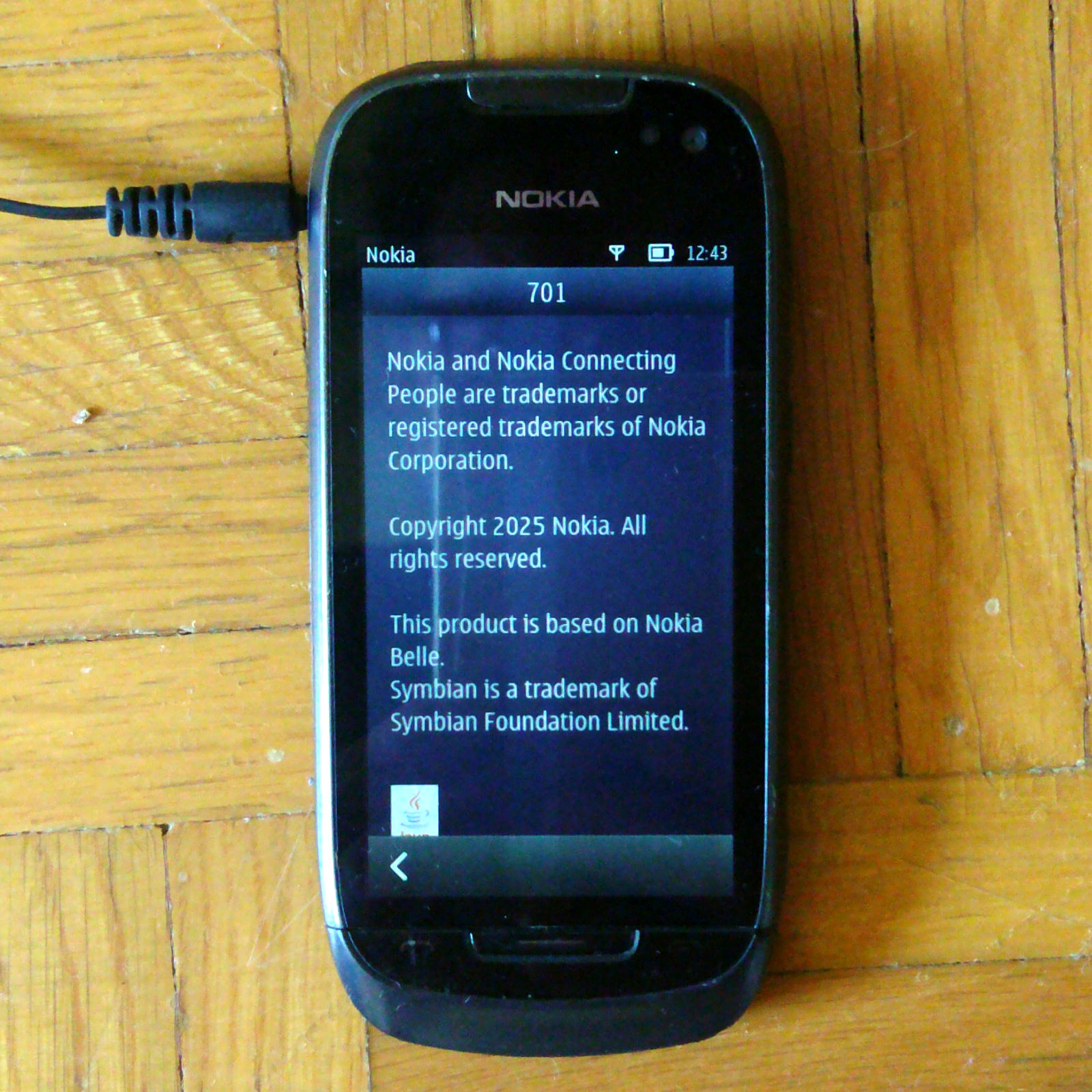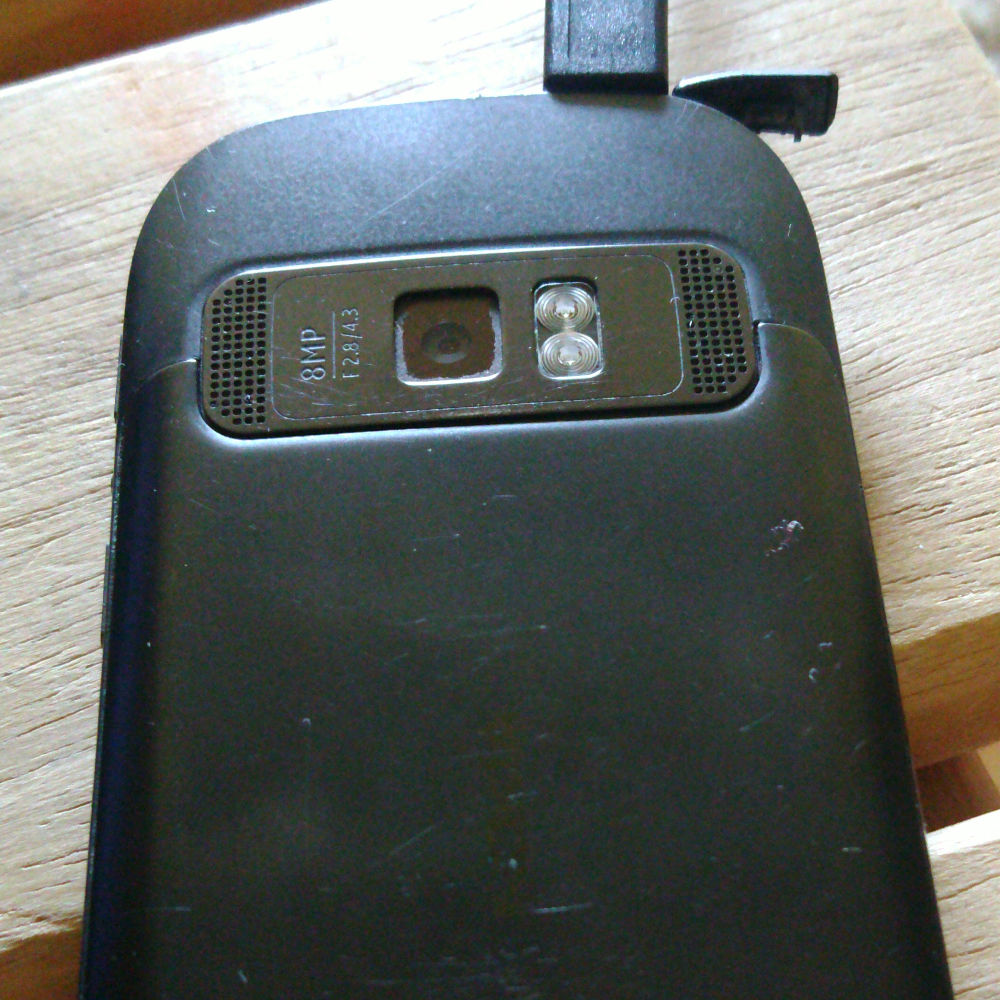Symbian: The forgotten FOSS phone OS
-
This post did not contain any content.
-
This post did not contain any content.
There were some really good. Nokia Symbian phones and some not so good ones. An issue back then was that not all apps were available for all phones. They would probably have fixed this if it hadn’t been for Elop killing them.
-
This post did not contain any content.
/me cries in Maemo :`-(
-
This post did not contain any content.
Oh, maan... I still remember my 5800, I loved that phone to pieces... Excellent speaker system for the time (it was genuinely stereo and had a bit of meat on the sound, too!), my first touchscreen (which was a bit frustrating due to my thick logs, but worked perfectly with the stylus), and it was also my very first experience with multiplayer on a phone! Used to play that default racing game with a year mate in Uni, and it was very fun! And the OS was as an OS should be: so smooth as to not even register with the user!
Edit: oh, and the full QWERTY was very nice, although I was fresh off the keypad, so it was a bit awkward.
-
This post did not contain any content.
Before Nokia was assimilated and digested by Microsoft, it open sourced the OS
Huh. Did not know.
Symbian's swansong was the remarkable Nokia 808 PureView. The 808 and other late-model Symbian devices run Nokia Belle which was really quite nice.
I still have a device here that runs that version. A Nokia 701. With AngryBirds games on it. It had an extensive app store. And that wonderful tiny charger connector (but also takes a charge from USB micro).

there was that brief attempt at a revival by Planet Computers but it really didn't stick
Oh, again I did not know that. I was interested in one of their later devices for a while, a keyboard phone running true Linux iirc.
-
There were some really good. Nokia Symbian phones and some not so good ones. An issue back then was that not all apps were available for all phones. They would probably have fixed this if it hadn’t been for Elop killing them.
To be fair, Nokia flodded the market every year with a ton of different phones
-
/me cries in Maemo :`-(
Maemo => Meego => Sailfish OS

Nothing ever replaced the N900. And there's a difference between a large corp developing a true Linux OS, as opposed to a tiny company. But still: it's not dead.
-
Oh, maan... I still remember my 5800, I loved that phone to pieces... Excellent speaker system for the time (it was genuinely stereo and had a bit of meat on the sound, too!), my first touchscreen (which was a bit frustrating due to my thick logs, but worked perfectly with the stylus), and it was also my very first experience with multiplayer on a phone! Used to play that default racing game with a year mate in Uni, and it was very fun! And the OS was as an OS should be: so smooth as to not even register with the user!
Edit: oh, and the full QWERTY was very nice, although I was fresh off the keypad, so it was a bit awkward.
My Nokia 701 also has Stereo:

And the sound isn't too shabby either. -
My Nokia 701 also has Stereo:

And the sound isn't too shabby either.Well, I can't speak for that one as I've never used it (nice though, looks like a proper Nokia should, gone through war and still running fine!), but the 5800 was a completely new experience for me in terms of phone-mounted speakers. Like, this was like a miniaturised sound system. The levels were unexpectedly balanced, the speakers were mounted well apart (at either end of the phone lengthwise), the stereo definition was very clear and dynamic, and it was loud and crisp enough to use as background music generator for a light social gathering, like a dorm room mini-party, setting the mood for... other activities, etc. without sounding like frying bacon.
Edit: I'm not a "play stuff through phone speakers" kinda' person, but the 5800, the Nexus 6, and the Zenfone 10 are the only phones with speakers so good, that they determined me to make an exception:))
-
This post did not contain any content.
Have a look at what came before Symbian : Psion series 5
In the end, when the Series 5 finally shipped, it was like being transported into the future, only through a very murky tunnel.
Gretton’s hardware clocked in at a meagre-sounding 18Mhz — but performed like a desktop Intel PC from just two years previously — and it could still maintain 30 hours use on two AA batteries. Once the circuitry was complete, the Series 5 performed the same tasks as its Windows CE rivals but used only a quarter of the power.
I still have two working Psion 5MX palmtops and love them to death.
-
To be fair, Nokia flodded the market every year with a ton of different phones
Which, honestly, was another thing I've come to love about the old Nokia! They weren't just phones, they were accessories as well! Every model had a clear personality and a target audience! I remember my mum had a thing for changing her phone often, especially with models only found in other countries (she would find THE weirdest salespeople, who brought in phones from friggin' Spain and such, and they were way cheaper than retail), and... while I don't agree with her somewhat rampant consumerism, I gotta say, every single model had a Vibe!
Besides my 5800, my other favourite from Nokia was my steel 6303 Classic. That was a downright sexy phone, and rugged to boot!
Edit: as opposed to the contemporary "my glass slab of phone from Asus has more personality than Samsung's glass slab of phone because they set the cameras differently..." I made myself sad...
Edit 2: Smartphone Banana phone (I'm talkin' the Matrix kind, with foldable screen, turns into AR glasses, and watch/wristlet-type thing when retracted!
-
Oh, maan... I still remember my 5800, I loved that phone to pieces... Excellent speaker system for the time (it was genuinely stereo and had a bit of meat on the sound, too!), my first touchscreen (which was a bit frustrating due to my thick logs, but worked perfectly with the stylus), and it was also my very first experience with multiplayer on a phone! Used to play that default racing game with a year mate in Uni, and it was very fun! And the OS was as an OS should be: so smooth as to not even register with the user!
Edit: oh, and the full QWERTY was very nice, although I was fresh off the keypad, so it was a bit awkward.
The 5800 was a nice phone, but for me the king of Symbian phones was the E7, I am still pissed mine got stolen

Loved the fold out keyboard, it made the phone absolutely amazing, I remember running Putty Touch on my E7, sshing into a friend's server to access irssi and go on IRC.
Looked like such a hacker, and felt badass.
-
The 5800 was a nice phone, but for me the king of Symbian phones was the E7, I am still pissed mine got stolen

Loved the fold out keyboard, it made the phone absolutely amazing, I remember running Putty Touch on my E7, sshing into a friend's server to access irssi and go on IRC.
Looked like such a hacker, and felt badass.
That was my Goal Phone, yes! Either that, or the N8, but the 5800 was the only thing I could afford at the time:))
They were really nice phones, properly into "smartphones" by that point - the 5800 was more like a... clever phone:))
Oh, nooo!:( I'm so sorry, that's how I lost my 5800, too! Got mugged at night, ffs..
-
This post did not contain any content.
I really liked my Nokia 5800. I just checked online and see that it retailed for almost half the price of an iPhone. No wonder it was popular where I'm from. It seems if you loose in USA market you loose everywhere.
-
That was my Goal Phone, yes! Either that, or the N8, but the 5800 was the only thing I could afford at the time:))
They were really nice phones, properly into "smartphones" by that point - the 5800 was more like a... clever phone:))
Oh, nooo!:( I'm so sorry, that's how I lost my 5800, too! Got mugged at night, ffs..
I used my first paycheck to buy myself an E7, less than a year later it was stolen

It was a gorgeous phone but DAMN slippery!
-
I used my first paycheck to buy myself an E7, less than a year later it was stolen

It was a gorgeous phone but DAMN slippery!
Jeesus, that genuinely sounds painful!:( I'm very sorry I honestly don't know what to say... I mean, I understand it's just A Thing
 , but some things are more than just "things"...
, but some things are more than just "things"... -
Maemo => Meego => Sailfish OS

Nothing ever replaced the N900. And there's a difference between a large corp developing a true Linux OS, as opposed to a tiny company. But still: it's not dead.
My N810 was my single favorite piece of industrial design in a mobile device. Not perfect, and use cases moved on (to say nothing of the internals), but it was so unique and thoughtful and intricate without feeling overly fragile.
-
Which, honestly, was another thing I've come to love about the old Nokia! They weren't just phones, they were accessories as well! Every model had a clear personality and a target audience! I remember my mum had a thing for changing her phone often, especially with models only found in other countries (she would find THE weirdest salespeople, who brought in phones from friggin' Spain and such, and they were way cheaper than retail), and... while I don't agree with her somewhat rampant consumerism, I gotta say, every single model had a Vibe!
Besides my 5800, my other favourite from Nokia was my steel 6303 Classic. That was a downright sexy phone, and rugged to boot!
Edit: as opposed to the contemporary "my glass slab of phone from Asus has more personality than Samsung's glass slab of phone because they set the cameras differently..." I made myself sad...
Edit 2: Smartphone Banana phone (I'm talkin' the Matrix kind, with foldable screen, turns into AR glasses, and watch/wristlet-type thing when retracted!
The banana was the shit. Sooo cool. So expensive.
Have you watched the Blackberry movie? Its a great insight into how Apple just crushed all of that market with the iPhone.
I wish Nokia had opened their system for third Party developers. They already had the capabilities for an app store on the devices, my E62 had a "store". But it was just so empty and horrible
-
Jeesus, that genuinely sounds painful!:( I'm very sorry I honestly don't know what to say... I mean, I understand it's just A Thing
 , but some things are more than just "things"...
, but some things are more than just "things"...Hehe, I was really sad when it happened, but it was more than a decade ago

I then ran a Nokia 300/Nokia E72 combo doe a while, and then a Nokia E72 for a few years untill I got an iPhone 5S
-
This post did not contain any content.
i still have a 808 Pureview. needs a new battery but otherwise I could flash a CFW for it to keep using it as a point and shoot camera lol







